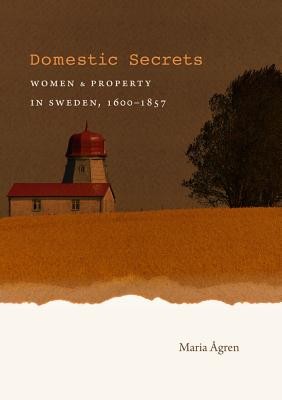
- We will send in 10–14 business days.
- Author: Maria à gren
- Publisher: University of North Carolina Press
- ISBN-10: 1469614537
- ISBN-13: 9781469614533
- Format: 15.6 x 23.4 x 1.7 cm, softcover
- Language: English
- SAVE -10% with code: EXTRA
Reviews
Description
Between the seventeenth and nineteenth centuries, women's role in the Swedish economy was renegotiated and reconceptualized. Maria Agren chronicles changes in married women's property rights, revealing the story of Swedish women's property as not just a simple narrative of the erosion of legal rights, but a more complex tale of unintended consequences.
A public sphere of influence--including the wife's family and the local community--held sway over spousal property rights throughout most of the seventeenth century, Agren argues. Around 1700, a campaign to codify spousal property rights as an arcanum domesticum, or domestic secret, aimed to increase efficiency in legal decision making. New regulatory changes indeed reduced familial interference, but they also made families less likely to give land to women.
The advent of the print medium ushered property issues back into the public sphere, this time on a national scale, Agren explains. Mass politicization increased sympathy for women, and public debate popularized more progressive ideas about the economic contributions of women to marriage, leading to mid-nineteenth-century legal reforms that were more favorable to women. Agren's work enhances our understanding of how societies have conceived of women's contributions to the fundamental institutions of marriage and the family, using as an example a country with far-reaching influence during and after the Enlightenment.
EXTRA 10 % discount with code: EXTRA
The promotion ends in 16d.20:58:51
The discount code is valid when purchasing from 10 €. Discounts do not stack.
- Author: Maria à gren
- Publisher: University of North Carolina Press
- ISBN-10: 1469614537
- ISBN-13: 9781469614533
- Format: 15.6 x 23.4 x 1.7 cm, softcover
- Language: English English
Between the seventeenth and nineteenth centuries, women's role in the Swedish economy was renegotiated and reconceptualized. Maria Agren chronicles changes in married women's property rights, revealing the story of Swedish women's property as not just a simple narrative of the erosion of legal rights, but a more complex tale of unintended consequences.
A public sphere of influence--including the wife's family and the local community--held sway over spousal property rights throughout most of the seventeenth century, Agren argues. Around 1700, a campaign to codify spousal property rights as an arcanum domesticum, or domestic secret, aimed to increase efficiency in legal decision making. New regulatory changes indeed reduced familial interference, but they also made families less likely to give land to women.
The advent of the print medium ushered property issues back into the public sphere, this time on a national scale, Agren explains. Mass politicization increased sympathy for women, and public debate popularized more progressive ideas about the economic contributions of women to marriage, leading to mid-nineteenth-century legal reforms that were more favorable to women. Agren's work enhances our understanding of how societies have conceived of women's contributions to the fundamental institutions of marriage and the family, using as an example a country with far-reaching influence during and after the Enlightenment.


Reviews